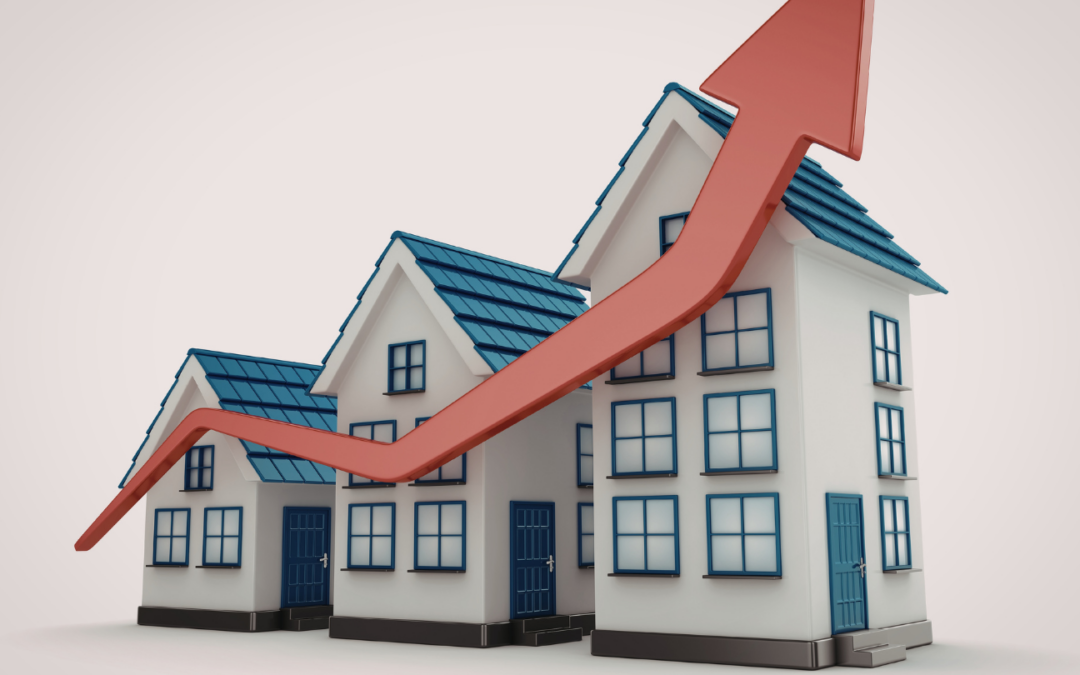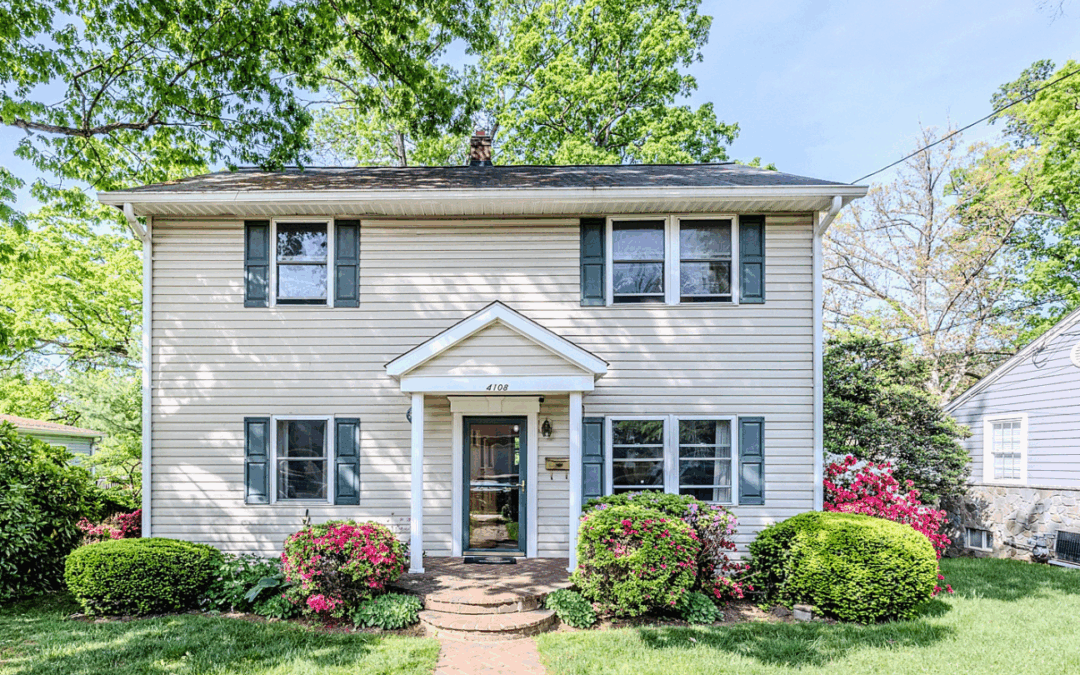New Construction vs. Existing Homes: Pros and Cons
As you hit the housing market, you may find yourself trying to decide if you should go with a new construction home or purchase an already existing structure. To help you in your decision making, we’ve laid out the pros and cons of new construction vs. existing homes.
Pros of New Construction Homes
Modern, Customizable Floor Plans
If you’re looking to customize your home’s floor plan, new construction is the way to go. You can work directly with a builder to create the home of your dreams. Want a breakfast nook? Home office with built-ins? Anything is possible!
Additionally, new construction homes are built to cater to today’s consumer, meaning they’re typically more modern and open than older homes. They also tend to have larger bedrooms and bathrooms, more storage, and more natural lighting than traditional builds, so if you’re buying a new construction home that has already been completed, chances are it’ll adhere to what you’re looking for more or less.
Personalized Finishes
Along with customizable floor plans, comes personalized finishes! Many builders will allow you to choose your own flooring, cabinets, appliances, paint colors, and fixtures among other features – even if you aren’t building a custom home. While it may cost you a bit more, many choose to splurge in order to make the space align with their vision.
Increased Energy Efficiency
New builds are typically much more energy efficient than existing structures as builders often utilize more energy efficient materials and systems, including energy-efficient HVACs, water heaters, insulation, windows and doors, and more. You may also have the option to amp up the efficiency by purchasing items like solar panels.
Furthermore, new homes may also come with smarter and more efficient technology, including smart appliances, programmable thermostats, and apps to track the efficiency of your appliances to name a few.
Lower Maintenance & Utility Costs
Because newer homes are more energy efficient, they also have lower utility costs. And because everything is new, you’ll also have less minor and major maintenance costs to keep up with.
Builder Warranties
In the event that anything does break or require repairs, new construction homes often come with builder’s warranties that can last anywhere from 1-2 years all the way up to 10 years for structural components. You’ll also typically have manufacturers’ warranties on your appliances, so you’re covered all around!
Community Amenities
Another perk of going with a new construction home is the community amenities. New home communities often have parks, pools, walking paths, tennis and basketball courts, picnic areas, and other recreational spaces for you to enjoy, depending on the community.
Cons of New Construction Homes
Higher Price Tag
Because they tend to come with all the latest bells and whistles, newly built homes generally have higher upfront costs than resale homes. While these upfront costs will be offset by lower utility and maintenance costs, the price tag is an important factor to consider as it will affect how much you need to save for a down payment and your monthly mortgage among other factors.
HOA Fees
While new construction communities generally have community amenities, they also usually exist within HOAs and come with fees to pay for these perks. HOAs also mean more rules and regulations to keep the community safe and well-maintained. While HOAs work for some, they don’t for others, so it’s important to know if the new build you’re considering is part of a HOA or not.
Longer Commute
New construction communities tend to be built farther away from major metro areas due to the lack of land available as well as the associated cost of that land. As a result, you may find yourself with a longer commute to work, grocery stores, dining and entertainment options, and other amenities if you opt for a new build.
Lack of Mature Landscaping
Because new home communities are, well, new and built on freshly cleared land, it can take time for the newly planted grass, flowers, shrubs, and trees to mature. While this isn’t a concern for everyone, some homeowners prefer landscaping that has been in place for years, or even decades, and has had time to flourish.
Smaller Outdoor Spaces
In addition to a lack of mature landscaping, newer builds sometimes have smaller yards and outdoor spaces due to the higher price of land these days. While this will depend on the community, many new construction homes have less outdoor space than older ones.
Longer Move-In Timeline
On average, homes built in the U.S. take around 7-12 months to construct – without any delays. Of course, if you’re purchasing a new construction home that’s already been completed, this isn’t a factor you need to consider. However, if you’re considering purchasing a new build that is pre-construction or in its early stages but need to get in somewhere quickly, you may be better off going with an existing home.
Pros of Existing Homes
Move-in Ready
Unless you’re purchasing a fixer-upper or planning to make extensive repairs, existing homes are essentially move-in ready. While you will need to work with the seller to establish a move-in timeline, you can generally get into a resale home much quicker than a new build.
Lower-Priced Options
With existing homes, you typically see a greater selection of options across different price ranges, so no matter your budget, you should have a plethora of options available to you (although this will depend on your local market).
More Location Options
You’ll also have more options when it comes to location as most newer homes are built outside urban areas whereas resale homes are more likely to exist across different types of locations – from city to country.
More Established Neighborhoods
Resale homes are also more likely to exist within more established communities. This means greater access to major metro areas and roadways, schools, and other amenities like parks, food, and entertainment.
More Mature Landscaping
And because they exist within more established areas, the landscaping in and around existing homes tends to follow suit, having had time to flourish over potentially decades.
Larger Outdoor Spaces
Additionally, because land used to be cheaper than it is today, you’ll often find older homes have larger outdoor spaces than newer builds.
Cons of Existing Homes
Outdated Floor Plans & Fixtures
Homes built in decades past are more likely to have outdated floor plans and fixtures unless the seller has made upgrades. You may find closed off spaces, smaller bedrooms and closets, and a lack of natural lighting among other items.
Energy Inefficient
Existing homes may also be less energy efficient than newer homes. Depending on what a home inspection reveals, you could be moving into a home with older and inefficient systems, materials, and appliances.
Higher Maintenance, Repair, and Utility Costs
Because resale homes have older systems, materials, and appliances, you may find yourself paying higher utility bills and potentially higher maintenance and repair costs.
The Bottom Line
There are pros and cons to both new construction and existing homes. Which option is better for you completely depends on your own situation and goals.
If you’d like to talk more about the pros and cons of new construction vs. existing homes, other real estate topics, or in need of assistance buying or selling, don’t hesitate to reach out! We have a team of experienced agents across the DMV with expert knowledge of the local market, ready to assist you in achieving your real estate goals!



